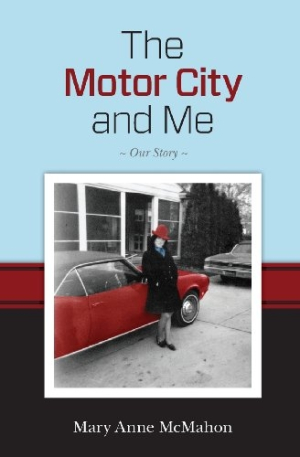The Motor City and Me
Our Story
The story of Detroit’s rise and fall, as seen through the lens of one family, captures what it meant to be an American in the twentieth century.
Billed as a tribute to Detroit, this rich memoir also reflects on more than a hundred years of American history, all viewed through the lens of the author’s family stories. Mary Anne McMahon, the great-granddaughter of Irish Catholic immigrants, spent decades teaching before committing to the page the Detroit she’s always loved, the once-great city to which generations of her family have been so intimately connected.
The memoir begins with the words of McMahon’s mother, Esmeralda, who, born at the turn of the century, was an inheritor of big dreams, one of them an unfulfilled desire to be a journalist. McMahon was bequeathed with her mother’s writer instincts, among other family treasures: a devotion to Catholicism, commitment to the needs of a large family, and a tendency to work hard and complain little. These characteristics and more manifest across the generations, all recalled against the backdrop of Detroit.
McMahon details how the burgeoning auto industry, coupled with the rise of the middle class following Roosevelt’s New Deal, led to Detroit becoming one of the jewels of America by midcentury—a thriving, diverse city where the American Dream flowered. The author’s own family, some of them little removed from the belabored shores of Ireland, found themselves advantageously centered there.
Despite personal difficulties, McMahon’s parents provided her with the opportunity for college and the strength to pursue diverse paths afterwards. Some of these paths took her far from Detroit—first to Germany, then to Texas, with her parents close behind—and though McMahon hasn’t lived in Detroit in decades, she insists that the city never left her heart.
McMahon’s American story is about so much more than the present. It’s a cross-generational exploration of how we got here, to whom we owe homage for our arrival, and how those who lay foundations remain alive in all that develops as a result. As such, not even stepping into a church happens in these pages without McMahon appealing to the past: “I sense the presence of all those who preceded me. I know exactly what they believed and felt inside those doors. Faith reveals what time and separation can’t take from me.” This conviction is pervasive in McMahon’s writing since her faith extends beyond Catholicism to her family, to herself, and to the city that made their stories possible.
A gifted storyteller, McMahon beautifully weaves her stories into Detroit’s, presenting its struggles in time with hers, looking forward to its recovery as her own blessings abound. She explores this connection with conviction. Readers will feel the appeal of her introspective, loving glimpses of once-glorious Detroit, a place which seems all but mythical in so many other discussions of the city.
The Motor City and Me is an enthralling and intimate portrait of what being not just a Detroiter, but an American, meant in the twentieth century.
Reviewed by
Michelle Anne Schingler
Disclosure: This article is not an endorsement, but a review. The publisher of this book provided free copies of the book and paid a small fee to have their book reviewed by a professional reviewer. Foreword Reviews and Clarion Reviews make no guarantee that the publisher will receive a positive review. Foreword Magazine, Inc. is disclosing this in accordance with the Federal Trade Commission’s 16 CFR, Part 255.

